Raqqa after Isis: Meet the 30-year-old woman rebuilding the former capital of the ‘caliphate’
In the first part of a new series from Syria, Richard Hall meets Leila Mustafa, who watched the city she grew up in taken over by Isis and destroyed. Now, the 30-year-old civil engineer is back to rebuild
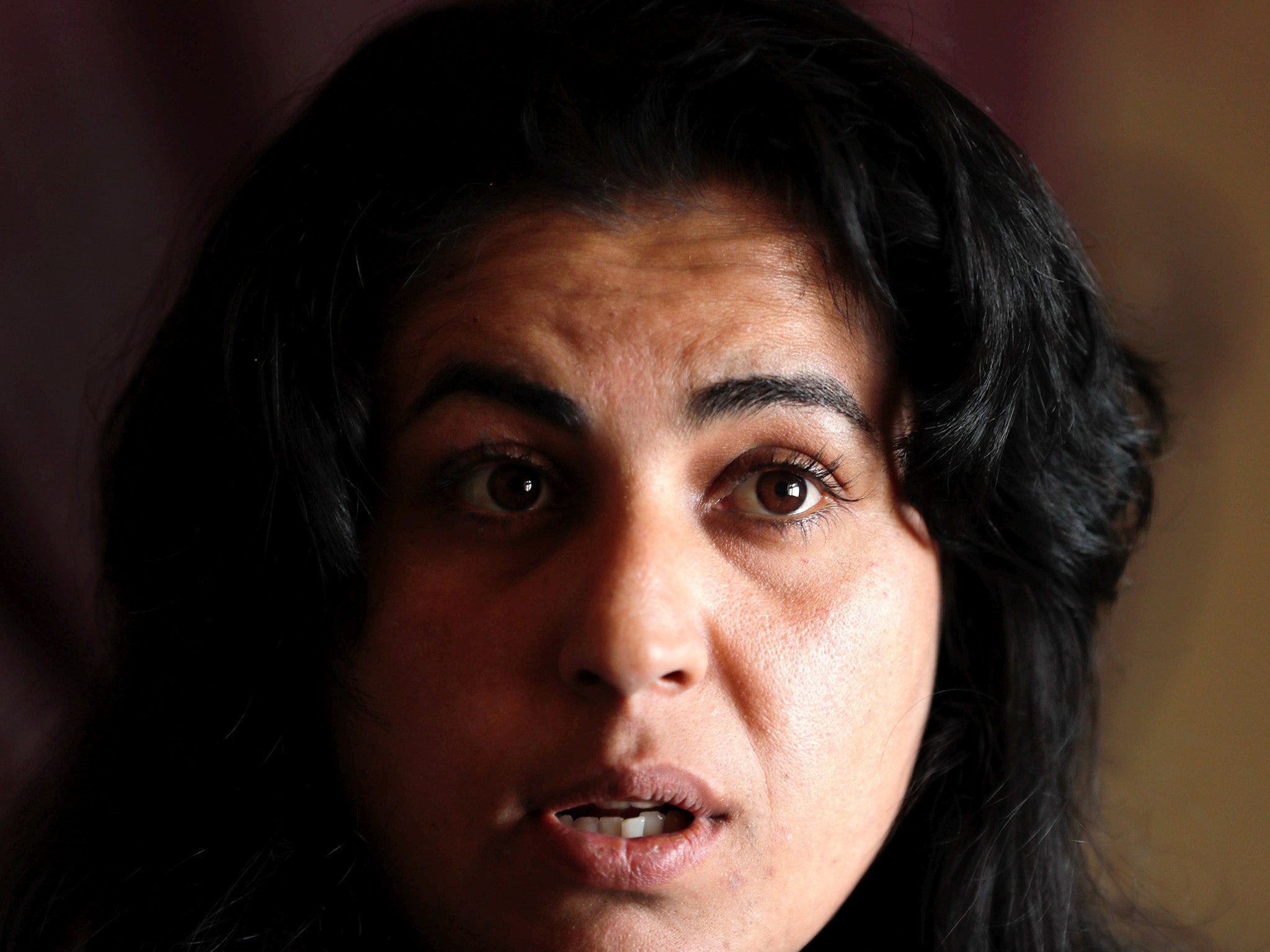
Every day on the way to her office, Leila Mustafa passes through the ruins of the city where grew up. Her journey takes her through streets that are little more than twisted metal and flattened concrete. Every day, she is reminded of the enormity of her task.
The battle for Raqqa, the former capital of the Isis “caliphate”, unleashed one of the most devastating air campaigns in recent history, reducing much of it to rubble.
Mustafa, a 30-year-old civil engineer, has been charged with putting it back together again
What we are building now is the complete opposite of what Isis did
“We have a lot to do,” she says. “All the infrastructure was destroyed, there’s no electricity, no communications, there are landmines everywhere, all the bridges are gone and the main hospital is still out of action,” she adds, and that’s just the start.
As the co-leader of Raqqa Civil Council, Mustafa is the closest thing the city has to a mayor. That a woman is now in charge of what was once the beating heart of Isis’s reign of terror – where women were subjugated and silenced – is an irony not lost on her.
“Women were prisoners here. They were not even allowed to leave their home. They had no rights,” she says, speaking to The Independent from her office within a heavily guarded compound. “What we are building now is the complete opposite of what Isis did.”
“This way of doing things hasn’t been completely accepted by everyone yet, but slowly, slowly, things are changing.”
And yet one year after Raqqa’s liberation, the shine is wearing off, and the hard realities of reconstruction and reconciliation are starting to bite. With threats rising from inside and out, the young leader has a narrow path to success.
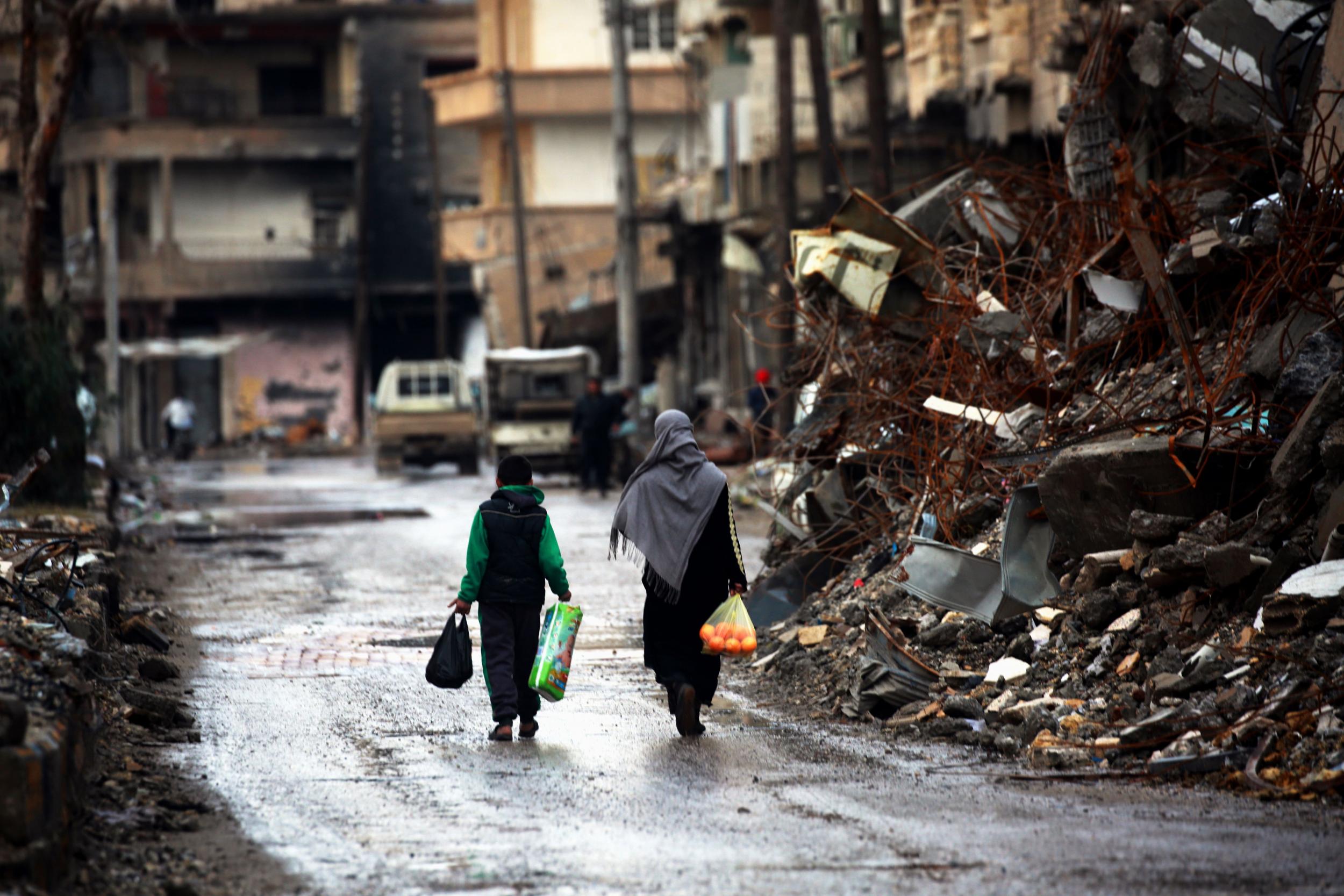
Raqqa was home to more than 200,000 people before the war – mostly Arabs, but also Kurds, Christians, Syriacs and Alawites. It was regarded as socially conservative, heavily influenced by tribal politics, and largely ignored by the Syrian government. In 2011, Bashar al-Assad became the first sitting president to visit the city in more than 60 years. But the people were known for their hospitality: “In Raqqa, the houses have no doors,” the saying went.
Mustafa, a Kurd, describes the city of her childhood as “quiet, simple and beautiful”.
“This urban expansion hadn’t happened back then. People used to get around on tuk-tuks and you could hear the sound of running water in the Euphrates,” she says.
She went on to study civil engineering and hoped to put her skills to use in Syria. The civil war changed everyone’s plans. As the country descended into violence in 2011 and 2012, Raqqa stayed relatively quiet. It wasn’t until the next year that the war really arrived.
In March 2013, rebels from the Free Syrian Army and the al-Qaeda-linked Jabhat al-Nusra took over the city from government forces. Less than a year later, Isis came to Raqqa. When they did, Mustafa decided to flee. She paid smugglers to take her and her family to Hassaka, some 120 miles away.
It was the destruction and misery that Isis brought to the city that would lead her back there, and into politics. Who better to help rebuild Raqqa than a civil engineer who lived her whole life there?
“I never thought I would be sitting here,” she says. “But the suffering in Syria, and what Raqqa faced, was inhumane. This situation pushed everybody to help.”
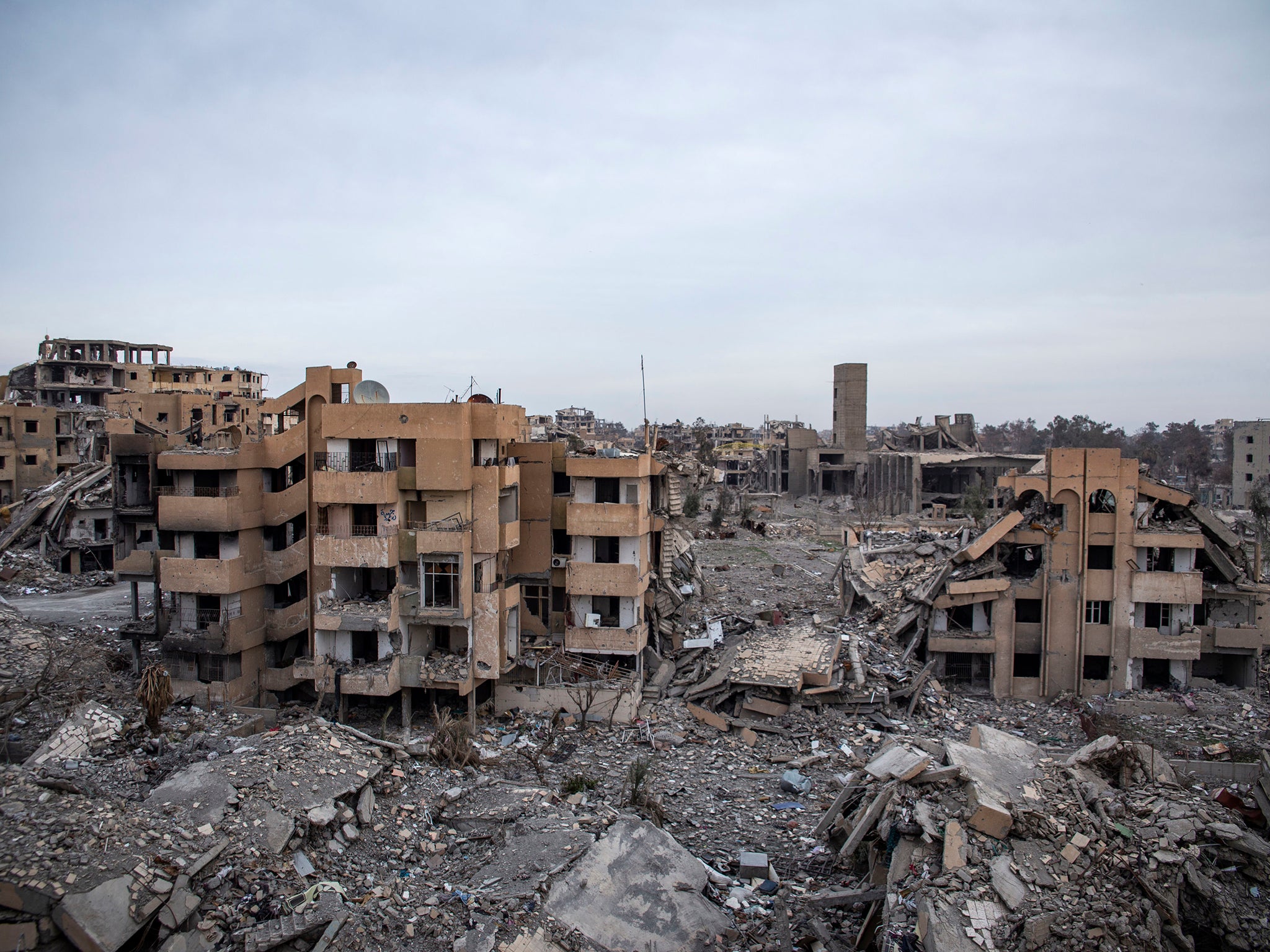
Despite her technical background, Mustafa is a natural politician. The waiting room outside her office is a hive of activity. She rushes in and out of meetings, pausing to talk to local residents who come to her with problems. She smokes, makes jokes with her guests, and generally dominates the room. It’s hard to imagine a more radical departure from the kind of men who ruled this city before her.
The same is true of the institution she now leads. Even for a city that has been ruled successively by the Syrian regime, rebels and Isis, the civil council is something of a novelty. It is made up of a mix of lawyers, engineers, doctors, tribal leaders and councils of technocrats, with Mustafa as its unlikely head. It is one of several regional bodies set up by the Syrian Democratic Forces (SDF) – a majority-Kurdish military alliance that routed Isis from Syria’s northeast.
These councils have been given space to operate, largely due to the presence of US forces in SDF-controlled territory. There are some 2,000 US troops on the ground in eastern Syria, there to support the SDF in the fight against Isis.
And while the US has shown little interest in supporting the Kurdish-led autonomous project in Syria, its presence has kept at bay those forces that would see it destroyed: Turkey, which sees any Kurdish attempts at self-rule as a threat to its hold over its own Kurdish land, and the Syrian government, which has promised to bring the entire country back under its control.
Those threats are no small thing, and the survival of these councils is by no means assured. Nevertheless, they are designed to be the foundation of an autonomous administration that the SDF hopes will outlast the civil war – a democratic experiment held up as an alternative to the rule of Assad.
“We’re trying to revive a democratic society that accommodates all opinions, sects and nationalities, without marginalisation or exclusion,” Mustafa says. “And of course, women have a fundamental role in building that democratic society.”
But not everyone is so hopeful. Many in Raqqa and other Arab majority areas view the councils as a Kurdish project, and those behind them as outsiders.
Zobair Shweikh, a civil society activist and Raqqa resident, told The Independent that people were grateful to be rid of Isis but said the civil council “was created by outside political parties” – and promised elections have not materialised. The council says elections will be held as soon as security improves.
“Until then, the council still does not represent the local community,” he says.
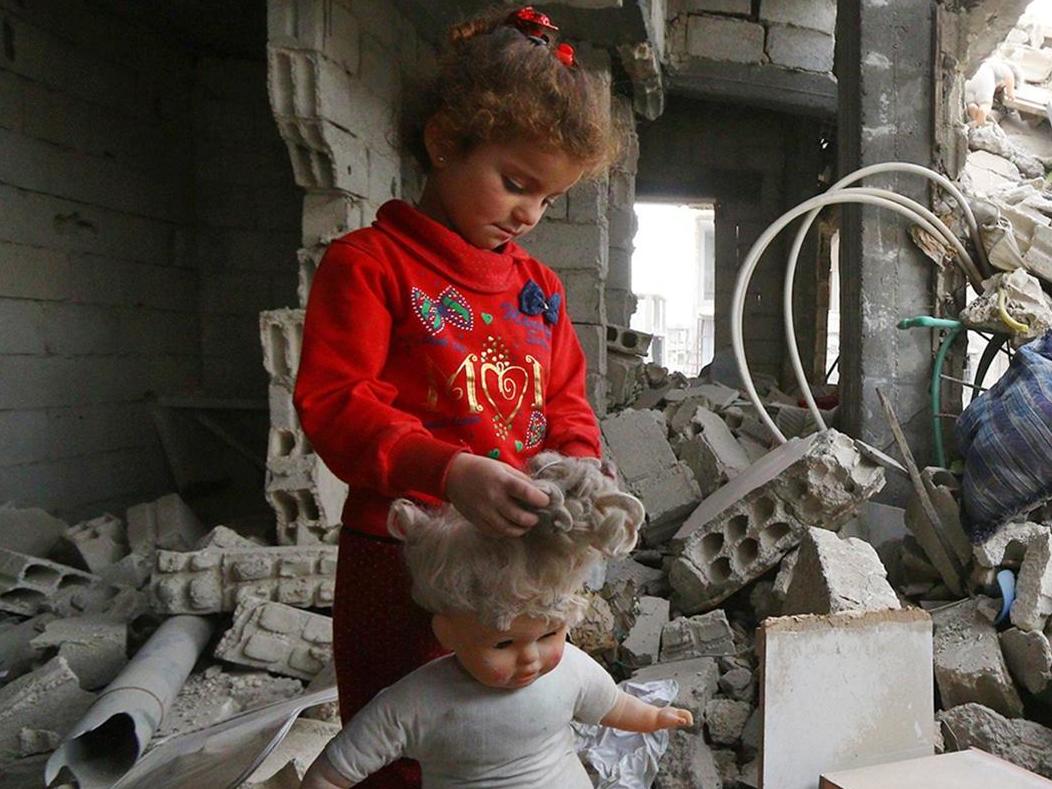
There is anger, too, about the way in which the city was liberated.
More than 1,500 civilians were killed in air and artillery attacks in Raqqa by the US-led coalition, according to Airwars, a UK-based independent investigative group that tracks civilian casualties. Hundreds were killed by Isis mines during, and long after, the fighting.
The civil council says it has reopened more than 200 schools and dozens of bakeries, removed tonnes of rubble, and restored the water supply to 90 per cent of the city. But there are signs of growing frustration at the pace of the city’s reconstruction.
Around 150,000 people have returned to Raqqa, but, driving through the city’s battered streets, one could be forgiven for thinking the battle ended only yesterday.
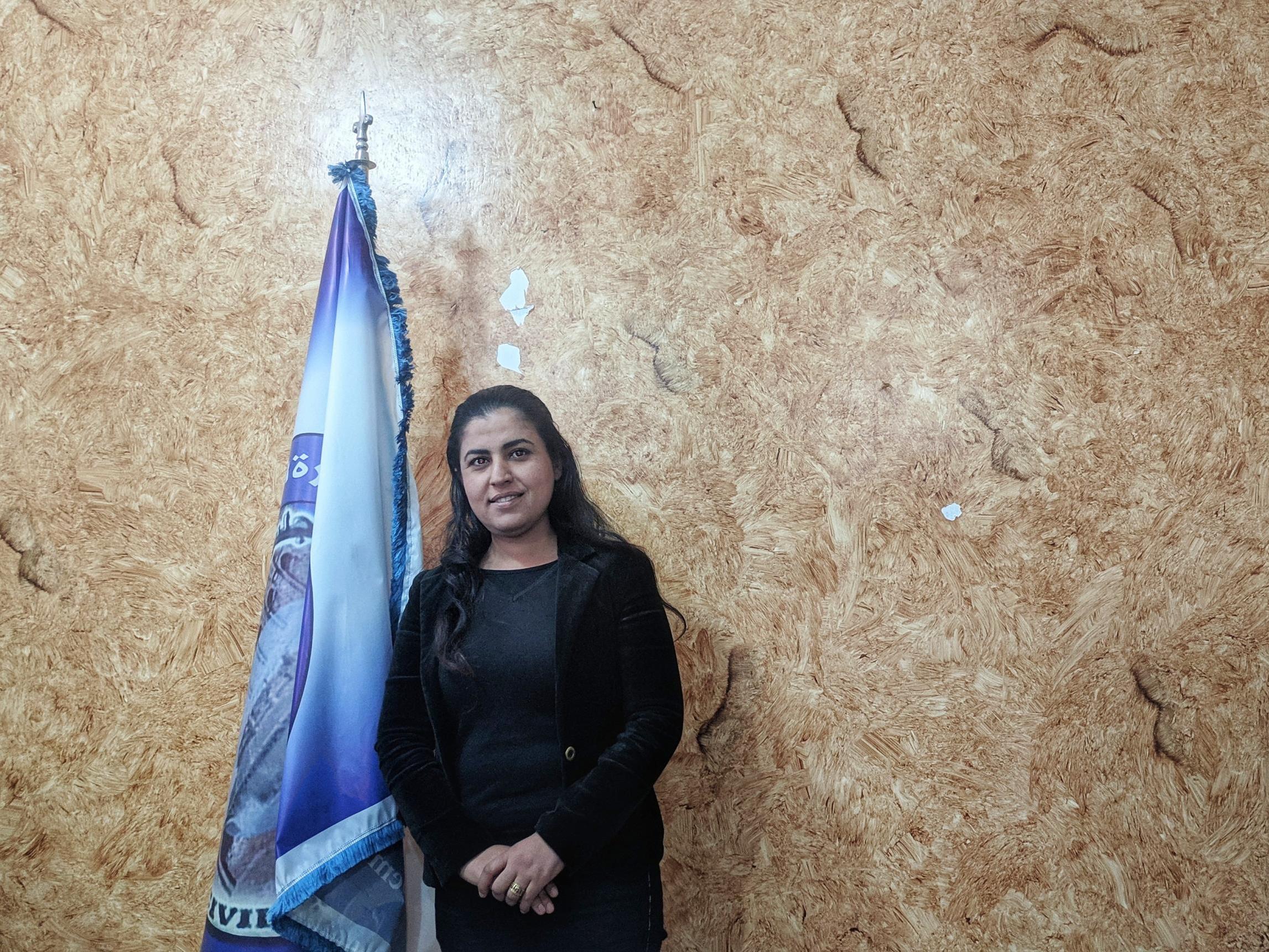
Children pick through scrap metal in the shells of what used to be apartment blocks in the hope of selling it. Unexploded bombs and mines lie hidden beneath the rubble, which is piled on every street. Generators are the only source of electricity, but they are costly and rationed, and at night the city is plunged into darkness. Municipal workers are still digging up mass graves left behind by Isis – at one site visited by The Independent, 1,500 bodies have been discovered.
These are problems that a functioning state would struggle to solve, yet alone a regional bureaucracy born in a war-zone. Rebuilding the city will be next to impossible without outside help, and yet the council’s repeated calls for assistance from the US and the UK have largely been rebuffed. In August, the US announced it would cut $230 million (£175m) in funds for stabilisation in northeast Syria, and tied future funding to concessions by the Syrian government on working towards a peace settlement.
“It’s not only the Raqqa civil council that needs to rebuild trust, but the international community as a whole,” Mustafa says. “Everyone should be concerned with supporting these people who paid a heavy price, and who had done nothing wrong.”

Using a city as vulnerable as Raqqa as leverage is a dangerous game. Without reconstruction, the city will remain unstable, and people are already losing faith in the SDF.
“We don’t feel safe any more,” says Zobair. “There are gangs stealing cars. They are kidnapping people and demanding ransom for their release. I can't walk alone at night,” he says.
Isis sleeper cells have been making their presence known in the city and are poised to take advantage of growing discontent. They are also carrying out regular attacks on the council. Just two days after The Independent visited Mustafa, one of the founders of the civil council – a prominent tribal sheikh named Bashir Faisal al-Huwaidi – was assassinated in broad daylight in the city.
The attack was later claimed by Isis. He was not the first council member to be killed in such a way. Omar Alloush, a friend of Mustafa’s who was seen as a link between the council and the US, was killed in March. Car bombs are becoming a regular occurrence inside the city, too.
Despite her optimism, Mustafa is not blind to the council’s failures, and recognises the work to be done.
“Even with all the work and achievements we have made, we still see ourselves as deficient,” she says.
She promises the council will stay in Raqqa, and continue to rebuild “with or without the international community’s help.”
But for as long as Raqqa’s reconstruction continues to be held up for ransom, it will remain a city of ruins.
Join our commenting forum
Join thought-provoking conversations, follow other Independent readers and see their replies
Comments